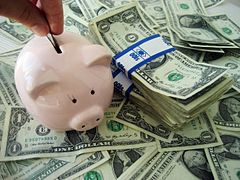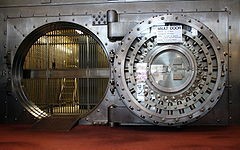Buying a home is one of the biggest financial commitments you will ever make. The process can be stressful, time consuming and complicated.
There are so many things to do, so many complicated terms to understand and at the beginning the process can seem like an impossible challenge.
At the same time, it is also exciting and an experience you will never forget.
To help you navigate this complicated process we have prepared a helpful list of the top 10 tips we have for first time home buyers.
Getting Started Buying Your First Home

1.Save
It is really important to start saving early. In a rising housing market deposits can be high. Lenders will also want to be able to see that you manage your monthly budget really well.
You should aim to have some savings at the end of every month.
When your starting to save for a home the most important thing to do is to get started. As soon as you decide to buy a home go out and open a savings account.
When your preparing for a long-term project like buying a home try opening a savings account that requires at least 30 days’ notice to make a withdrawal.
The interest rate on that account will most likely be higher helping you to reach your home ownership goal much faster!
Set yourself a target and make sure you reach it every month. Drink 4 coffees a day? cut it back to two and little by little you will get there.

- Location, Location, Location
The next step may seem obvious. The most important thing to decide when you’re a potential new home buyer is to decide where you want to live.
Compile a list of the locations which you would like to live in. Decide what your most basic needs are in terms of space and begin your research online.
Introduce yourself to local realtors too, let them know your in the market for a new home.
The most important things to consider when it comes to buying a home are transport links and resale value. These things are usually linked but not always.
Will that scenic view be worth it in November when you have to travel on a narrow dirt road to get to the Freeway?
Once you have decided on what you need transport wise and are confident that homes in the area sell quickly your ready to begin your search.
But Don’t Forget!
If you are not 100% happy with your options and the homes which are currently on the market, move on to the next location on your list.
A home purchase is a long-term commitment. Could you live in the home for the next 5, 10 or 15 years and be happy? If the answer is no, then move on.
But wait:
3.Should you really buy at all or just stay renting?
You really need to be happy that any home you are buying is right for you. Prices can go down as well as up and over the period your living in the house you buy.
There’s a simple calculation which help you know what’s right for you. Find out how much it costs to rent the property versus how much your mortgage payments would be.
Imagine interest rates rose by 2%, would it still be cheaper to buy? If so you can be confident your making a reasonable choice.
There are other things to consider when buying a home v renting. At the end of the mortgage you will own a property. Renting will not offer this long term security even if it may be cheaper in the short and medium term.
Take a long term view but really think about whether now is the right time to buy before you go any further.
But here’s the deal:
- Don’t forget to live
Buying a new home is a complicated and expensive process, you are committing to a large monthly payment for at least the next 20 years!
Make sure you include some fun in your projected household budget when working out how much you can afford in mortgage repayments. Twenty years is an awful long time to go without a holiday or nice meal in a great restaurant.
Make sure you include this when working out how much you can afford in monthly payments. Don’t be too easy on yourself. Ask yourself how you have been living for the past 3 years and consider whether your ready for a change in lifestyle.
Then think about it again, long and hard.
If you decide to reduce the amount you can put towards mortgage repayments you may have to purchase a slightly smaller house. But can you really put a price on happiness?
Choosing the Right Home Finance Option
- High interest debt is the enemy
Not all debt is bad, and you’ll almost certainly have some at some stage.
If you are buying a home you need to make paying off expensive debt such as pay day loans your priority.
Short term loans can be expensive. Banks don’t like to see you using them and they will lend you less if you have some so work through them as a priority.
If you are relying on short term credit it may suggest to the bank that your not managing your personal finances very well or have other hidden expenses you have not told them about.
It can be hard to avoid taking on expensive short-term debt or store credit but don’t worry. If you find yourself needing to do this regularly take a look at your monthly budget.
Help is at hand!
Track what you spend. It doesn’t have to be a spreadsheet with every dime listed but there are a host of cool apps out there than can help you track where your money goes.
Are you really spending $150 a month on coffee? What, I’m spending $40 a week on Uber?
Seeing how much you spend written down in black and white can be a real eye opener. Use that information to set broad financial goals and they will make you more likely to not need any short term credit.
Get a basic grip on your finances now and cut out unnecessary spending so you have something to show for your money.
As well as tracking your spending before you take on some expensive debt ask yourself a simple question.
Would you have parted with your hard-earned cash for that hot pair of jeans for $100 if you realized that the interest on any debt you used for the purchase could add another $60 or $70 to the cost within months!
No way!

And another thing:
- Try to quit online gambling
Lenders like to see that you are responsible with your money. If you like to gamble online a lot they may get nervous.
You may not like to here this:
This tip is simple, there is no other way around it. You should probably quit online gambling to show any lender that you manage your expenses well.

- How much will this all cost?
The interest costs on your mortgage can be huge over the lifetime of the loan.
Beware!
Be careful with introductory discounted rates and always consider the rates that apply after the expiry of the discount period.
There are a couple of products out there where the interest rate is really low at first but increases a great deal over time. If you are considering one of these products you need to ask yourself, can you make the payments when the interest rates are at their highest?
If not you may need to consider another option.
There are two other big options when it comes to mortgage interest rates. A fixed interest rate that stays the same for the lifetime of the deal or a variable one that changes over time.
If you choose a fixed rate you may have to pay penalty fees if you wish to pay off the loan early so it’s not an easy choice to make. Going with the cheapest option may not be the best way forward.
Ask yourself how long you wish to live in the property when deciding between a fixed and variable rate. If it’s a really long time and interest rates are low, a fixed rate may be for you.
If you decide to get a mortgage with a variable interest rate, ask yourself could you still make the repayments if interest rates rise?
These are complex questions and its important to seek professional advice when making this decision.
Closing the Sale
- Get your documentation ready in advance
A lender will ask for a lot of documentation when reviewing your application for a home loan. It can take time to get this documentation together.
They need to be sure that you are who you say you are and that your income is what you say it is.
Make life as easy as possible for you and your mortgage lender. Once you know you are going to be applying for a mortgage try to have all your documentation ready before you begin to meet with banks and mortgage brokers.
It is very likely that you will need a number of months bank statements, proof of address (utility bills for example) and proof of your income. In many cases all of the documents will have to be original and often, downloads from online applications just will not do.
The documentation will also have to be recent and some lenders may have even more requirements!
Plan, prepare and get your documentation together now.
- Line up a little experience
You wouldn’t buy a car without getting a mechanic to check it. So don’t why would you buy something which is ten times more expensive without a little expert advice.
When you view potential homes take your time. Think about getting an independent structural evaluation. This may seem expensive but it can save you a lot of money in the long term.
A little money spent now which could save you tens of thousands of dollars in the future.

But don’t stop there !
Do a research about the house and the neighborhood. Ask some locals if they have any advice on the locality.
You definitely don’t want to find out after you make the purchase that there is quality issues with the construction of the house or a bar opening at the end of the street.
There is also other things you may need to consider such as are the local schools good, where is the nearest grocery store, what is the traffic like on a busy day ?
Again, local knowledge can be worth its weight in gold. You may feel a little awkward about asking people questions but think of them as your potential future neighbors.
If you find out that there really friendly than that’s certainly a bonus.
- Shop around !
When it comes to buying a home you should spend time shopping around for value but not always the cheapest deal. This may seem simple but its way more important when buying a home.
Please don’t do this:
Do not always go with the cheapest quote or the quickest turnaround. You need to make sure that what your buying or the service your using has the correct blend of quality and value.
Always remember you don’t owe anybody anything. You don’t have to be loyal to any financial institution, so you can use one service provider or bank as leverage against another.
In a competitive market its possible to get some great deals and save serious money. In some cases you may need to grit your teeth and go with the best which is often the most expensive.
This can be especially true when it comes to legal advice.
Once you have done the above and your ready to close the purchase on your new home, remember, enjoy it! you have worked hard to get here and should be proud of the achievement.
Not everyone is able to buy their own home. Well done!



